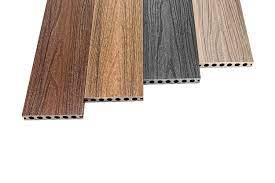When you are choosing the deck boards to be used in your outdoor space, it’s important to consider their environmental impact. The decking materials are diverse and knowing their environmental impact can help you make a more sustainable choice. Here’s what you should know about the environmental impact of the various Deck boards (Deski tarasowe):
1. Wood Deck Boards
Traditional wood deck boards, such as those comprised of redwood, cedar and pressure-treated wood, are renowned for their natural aesthetic and durability. However, their environmental impact varies:
Cedar and Redwood: These woods are typically harvested sustainably from managed forests that can make them more sustainable alternatives. However, their use can contribute to deforestation if not sourced responsibly. Cedar and redwood are also very low in toxicity, and can be treated with environmentally friendly sealants.
Pressure-Treated Lumber: This kind of wood is treated using chemicals to ward off decay and insects. In the past, treatments included arsenic, however the modern treatments are safer. Still, pressure-treated wood can let chemicals in the soil and into the water over time, raising environmental issues.
2. Composite Deck Boards
Composite decking is made from the combination of wood fibers and plastic that is usually recycled. This makes composite boards an environmentally friendly option in many cases:
Recycled Content: Many decking boards made of composite are constructed from recycled wood and plastic material which helps reduce the demand for virgin materials and diverting waste from landfills.
Longevity: Composite decks have been well-known for their durability and low maintenance, which could reduce the need for frequent replacements and refinishing. This can reduce their environmental impact over time.
Non-Biodegradable: However, composite boards are not biodegradable. At the end of their lifespan, they will be disposed of in landfills, unless they are they are recycled, which could be one of the drawbacks.
3. Plastic Deck Boards
Deck boards made of plastic are constructed entirely of synthetic materials like recycled plastics. They have several advantages for the environment:
Recycled Materials: Many plastic deck boards are made from recycled plastics, helping reduce waste from plastic and minimize reliance on new materials.
Durability and low maintenance: Plastic decks are resistant to insects, weather, and decay, which will extend their life and decrease the requirement for regular maintenance. They are also fully recyclable which may help to alleviate certain environmental issues towards the end of their lifespan cycle.
4. Bamboo Deck Boards
Bamboo is a rapidly renewable source, which makes it a green alternative
Sustainability: Bamboo is a fast-growing plant and is able to be harvested without killing the plant, making it a sustainable option as compared to conventional hardwoods.
Durability: Bamboo decking can be as strong as hardwood if properly handled, however it’s environmental benefit is enhanced when it is responsibly harvested and treated.
Conclusion
When selecting deck boards, think about the material durability, sustainability and disposal at the end of their life. Opting for recycled or sustainably produced materials can drastically reduce the environmental impact while enjoying the beauty of your outdoor space.



